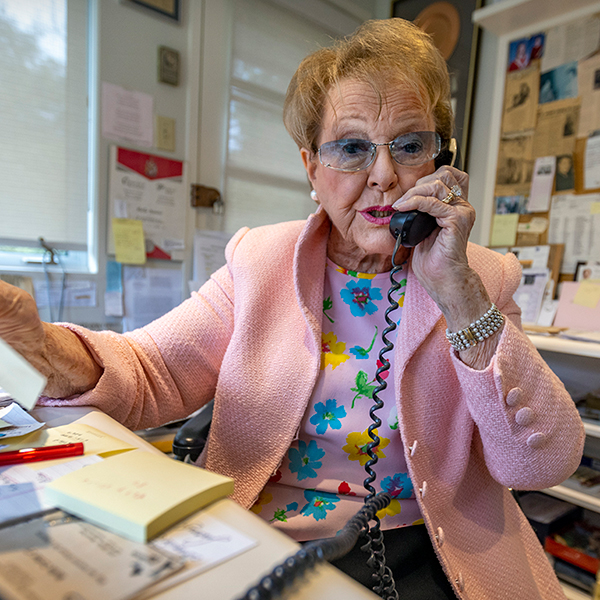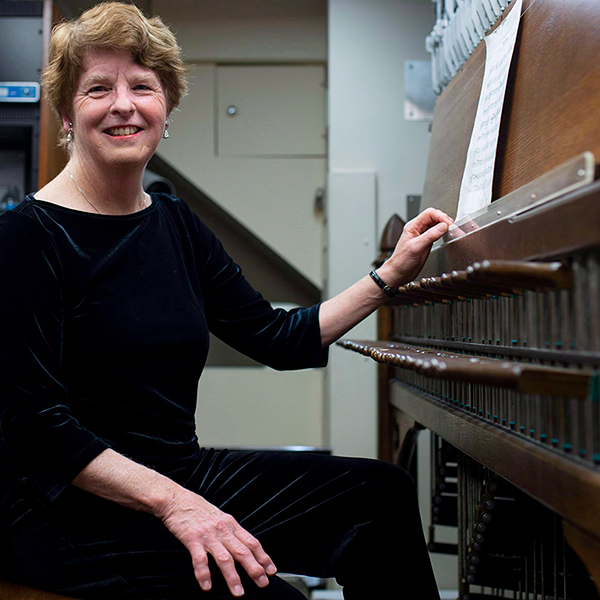For Kami Kandola, MDCM’92, the past four months have been “non-stop busy.”
Which, of course, isn’t surprising since Kandola is at the forefront of efforts in Canada’s Northwest Territories to keep COVID-19 at bay.
As chief public health officer for the Northwest Territories, Kandola issued an order in March, prohibiting travel into the remote region of northern Canada with “limited exceptions.” Residents returning to the NWT – the order came halfway through the March Break when thousands were away – had to submit a self-isolation plan and get it approved.
By late June, the sparsely populated Northwest Territories had recorded only five cases of COVID-19 and no deaths.
The risk now is essentially travel-related. “For all intents and purposes, we don’t feel we have community transmission,” Kandola says.
“I think our biggest concern is that we don’t have the same capacity in the north that we have down south. Having even three ICU patients could overwhelm our health care system pretty quickly.
“What we do know is in our smallest communities, if a COVID case was to occur, we have high housing density, we have a quarter of our population [who] have pre-existing chronic disease, in the smallest communities 50 per cent of the adults smoke. So, we have a lot of issues that if a case was to occur it would spread pretty quickly and quickly overwhelm the system and then we would have our elders who are at high risk.”
Kandola fell in love with the north following her residency rotations in Northern Quebec.
From a young age, Kandola, who moved to Montreal from England as a child, knew she wanted to be a doctor. She was fascinated by the human body and biology and imbued with an altruistic streak. “I’m a helper and I always wanted to make the world a better place.”
After CEGEP, Kandola did a year of pre-med at McGill and then began her medical degree. “[Peers] used to ask me if I was Doogie Howser’s sister because I looked so young,” she says, referencing the TV dramedy about a teenaged doctor.
At the end of her first year, she went on a volunteer mission with classmates to Brazil, spending time in a hospital and a leper colony. She later worked with American pediatricians in the slums of Guatemala City and in the mountains “where the guerilla forces were not that far away.
“When you’re young and single, you don’t think about things like that,” she says.
When she graduated from family medicine, Kandola juggled locums (filling in for other doctors) in Northern Quebec and volunteer work in Côte d’Ivoire at a Baptist health centre and a hospital.
“I would fund these trips on my own,” she says, doing a locum and then head to Africa. “I didn’t want any money being taken away from people who needed it. I just wanted to go and help.”
She saw many things in Africa, including a measles outbreak, tuberculosis and HIV/AIDS – but wondered how many more people she could save if she took a population-based approach. Which led her to Johns Hopkins and a master’s in public health.
She worked as a health specialist for the Canadian International Development Agency for five years.
Kandola went to the Northwest Territories for a public health conference in Yellowknife “but also because my heart was tugging to go back to the North.” She saw her former supervisor from Northern Quebec, André Corriveau, MDCM’81, who was then the chief medical officer of health for the Northwest Territories.
Corriveau offered her a six-month position and she became the deputy chief public health officer in 2003. She stayed in the job for more than 15 years.
“It ended up being the best thing ever,” says Kandola, who met her future husband a year later and has three stepchildren and a 12-year-old son.
Corriveau is now retired and Kandola officially took over his position in 2018. Before that, between 2009 and 2012, when Corriveau left for a time to serve as chief medical officer of health in Alberta, she became the NWT’s acting chief public health officer. That period coincided with the H1N1 pandemic and the experience has proved helpful to Kandola.
“With a pandemic, you have to always be in front of it, you can’t be chasing it. Once you’re chasing it, it’s game over. I learned a lot about getting my ducks in a row from the H1N1.”
The pace has been intense for Kandola and her staff, but she took time for a weekend camping trip in June – a time of year when the sun sets after 11:30 p.m. “There’s so much beauty in the summer, so you have to take time to get in the boat or go in the quad or go camping. You have to grab your moments where you can, or you won’t get through it.”
Many Canadians haven’t travelled to the north, notes Kandola. “What makes it fascinating for me is [the population is] over 50 per cent Indigenous and we have 33 communities.” She has developed enduring friendships and relationships and describes herself as a networker. “I use my public health principles, but also having these networks and relationships to be able to communicate effectively. In some ways, I feel really needed and wanted up here.”
She has grown to understand the vast territory and has “a real appreciation for the variety of Indigenous groups that have lived here for hundreds of years,” she says, calling it an honour and privilege to work there. Kandola’s long-term commitment to the territory and to its people hasn’t gone unnoticed. “The number one thing I feel they appreciate is that I’ve stuck around. I have not moved on in 17 years. I’ve made Yellowknife and the north my home.”
Kandola says she loved her time at McGill and returned in 2017 for her 25th class reunion. “You don’t get to express to institutions how grateful you are, so it is with great humility that I just want to thank McGill for making me the physician I am today.”


